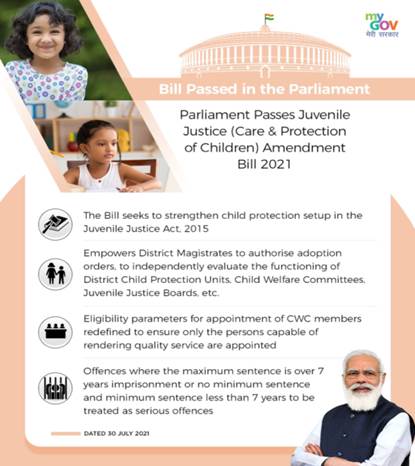Free Courses Sale ends Soon, Get It Now


Free Courses Sale ends Soon, Get It Now



Copyright infringement not intended
In News
Details
Juvenile Justice (Care and Protection of Children) Amendment Act, 2021
.jpg)
Other laws on guardianship and adoption
https://epaper.thehindu.com/Home/ShareArticle?OrgId=G4OAJQBPE.1&imageview=0
https://t.me/+hJqMV1O0se03Njk9
© 2024 iasgyan. All right reserved